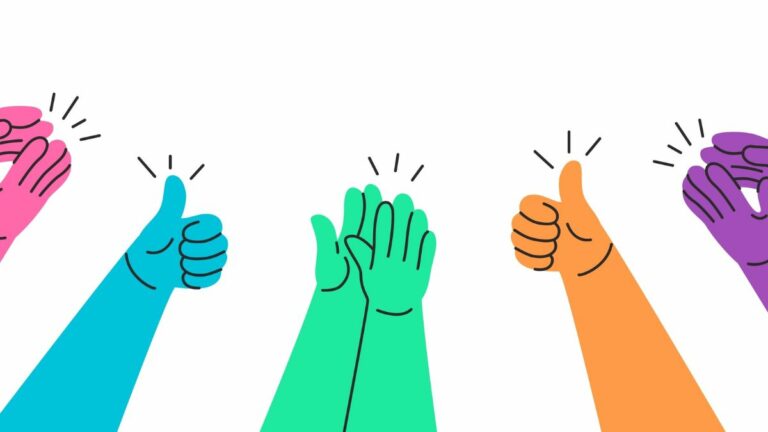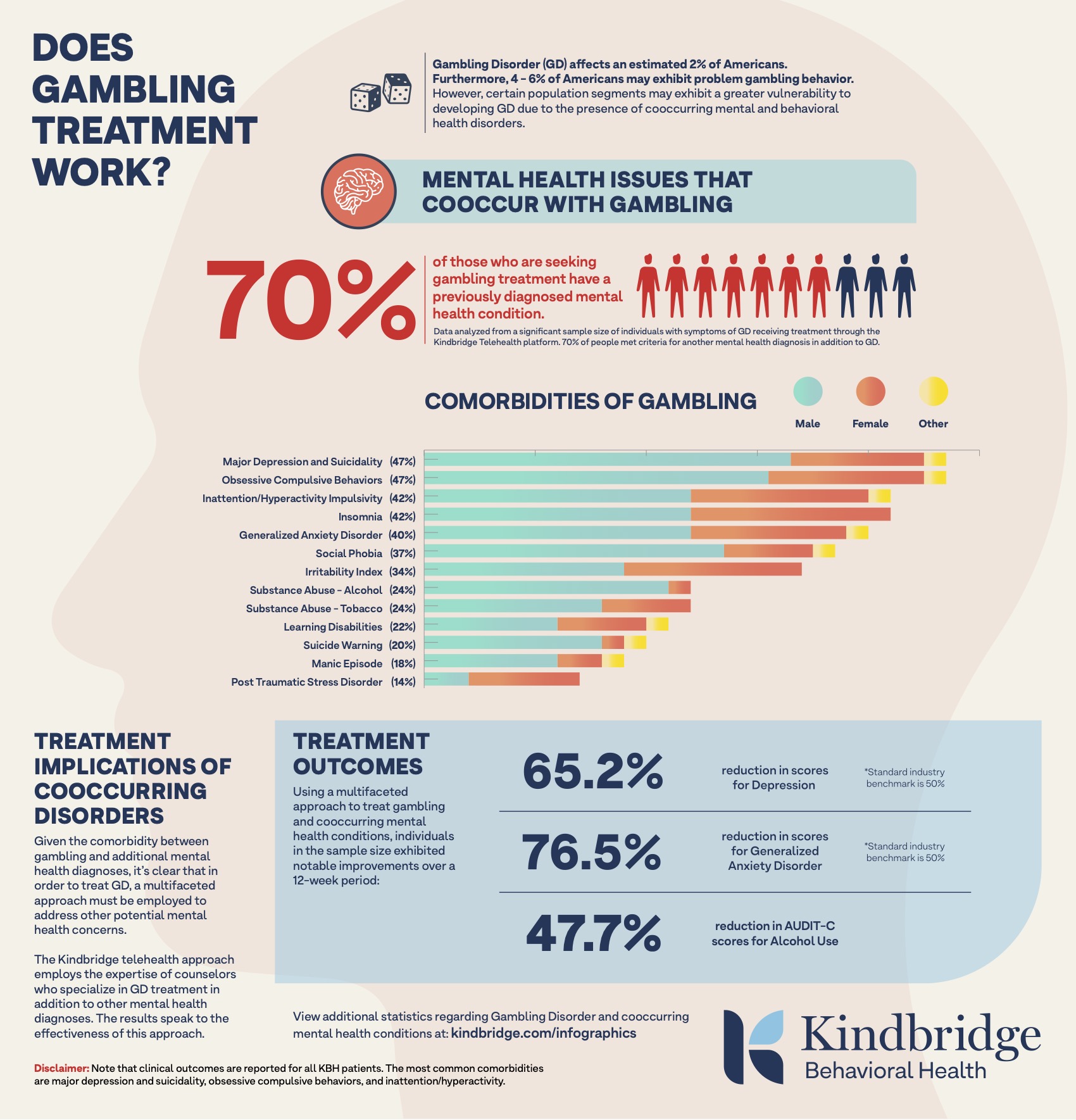
Customized treatment is “crucial” to success when addressing problem gambling behaviors and comorbid mental health conditions, according to a new report from Kindbridge Behavioral Health (KBH). Perhaps equally critical is the relationship between clinician and patient.
While not called out in its report, Kindbridge noted the latter’s import in conversation with Bonus.
Chief clinical officer Michelle Hatfield said treatment is more than a workbook someone can follow; it’s a process. Hatfield is also one of three credited with authoring the report.
Therapy is personal, counseling is personal, and the connection you have with the person you’re working with is important.
In a separate conversation, Dr. Nathan Smith, one of KBH’s scientific advisors, echoed the impact of the patient-clinician connection, calling the bond “powerful.”
Smith is also the founding executive director of the not-for-profit Kindbridge Research Institute (KRI). Separate from KBH, KRI functions as an “advanced learning and knowledge hub for behavioral addictions.” Smith told Bonus that when ranking treatments by efficacy, the therapeutic bond is so vital that controlling for its effect often erases much of the hierarchy.
A lot of the work is also sort of meta. It’s you telling me your story, and I reflect it back to you. I reflect the parts back that are helpful for you to see… So, getting the person talking is very important.
With that in mind, KBH uses a tool to track and measure the patient-clinician relationship after each treatment.
Those efforts appear to be paying off: Kindbridge’s first public report shows its telehealth offering is an effective tool against problem gambling. Typically, clients exhibit “exceptionally positive” results after three months of treatment.
Tailored Gambling Treatments Get Results
The report, Kindbridge Gambling Disorder Treatment Outcomes (Summer 2024), is the first of what the telehealth provider says will be a quarterly publication.
Previously, the clinical counseling service prepared monthly reports for regulators, policymakers, gambling executives, and responsible gambling and advocacy groups. However, realizing Americans impacted by gambling disorder could also benefit, Kindbridge decided to share its insights publicly.
Published in August, the report is attracting increased attention during Responsible Gaming Education Month (RGEM), and with good reason. The data provides compelling evidence of KBH’s “significant successes” in treating gambling disorders with its customized telehealth interventions.
Highlights include a 65% decrease in scores for depression and a 77% reduction in Generalized Anxiety Disorder (GAD)—scores well above the industry standards of 50%. However, it is important to note the clinical outcomes reported here include all KBH clients, not only those with gambling disorders.
Still, these results are significant as Kindbridge’s data also shows more than two-thirds of problem gambling clients enter treatment with previously diagnosed mental health conditions. Of those, the most common preexisting diagnoses are anxiety (20%), depression (17%), and Attention Deficit Hyperactivity Disorder (ADHD) (13%).
Further, once in treatment, 47% of KBH clients meet the diagnostic criteria for Obsessive Compulsive Disorder (OCD) and major depression with suicidality. In second place, 42% meet the criteria for ADHD and Insomnia.
Other comorbidities identified include:
- GAD: 40%
- Social Phobia: 37%
- Irritability Index: 34%
- Alcohol & Tobacco abuse: 24%
- Learning Disabilities: 22%
- Suicide Warning: 20%
- Manic episode: 18%
- Post-Traumatic Stress Disorder (PTSD): 14%
On average, said Smith, a client with gambling disorder has about four other mental health conditions, making customized treatment even more crucial.
It should not be McDonald’s, right? It should be more like the made-to-order omelet station on the cruise ship.
Men Take Center Stage
Notably, in all but one category (PTSD), men reported higher rates of comorbidities than others.
While possibly surprising given men are statistically less likely to seek mental health services, Smith said the results reflect the US gambling population.
Gambling clients that come through are more of a reflection of the people who gamble online or on sports in the US than they are of the people who seek treatment in general. When you look at those numbers, there are more men. They’re younger, they’re more white. They look more like sports betters than they do the general population.
Indeed, KBH’s problem gambling data reflects the same. Over three-quarters of the 279 people included in the report were white and male. Most were young, with over a third of participants being between 25 and 34, the largest age demographic.
Treatment Can Open Doors, Change Lives
While Kindbridge’s outcomes report offers several insights, Smith told Bonus he hopes the takeaway underscores the way treatment can positively impact lives.
People come in. They’ve got high comorbidities and are ready to change. They do the work, and they get better. And when I say they get better, their score goes from an eight to a three. But what happens is the amount of anxiety in their life goes down dramatically, and that opens up a lot of doors.
If you haven’t been sleeping well for six or seven years, and you start to get better: You’re feeling better, your anxiety is going down, and you’re getting better sleep for three or four or five weeks—that can completely change your life. And that’s true, not just about sleep, but a lot of things. And that’s really where I see the power of it.
In the future, Hatfield is interested in harnessing Kindbridge data to further benefit clients. She said she wants to be “sensitive” to findings that support improved services and client experiences to help people better address their behaviors.
There’s a lot of data we’re collecting now, and it’s really helpful… but we also need to be focused and targeted.
I think focusing on interventions and the model of treatment we provide is going to help us get there.






